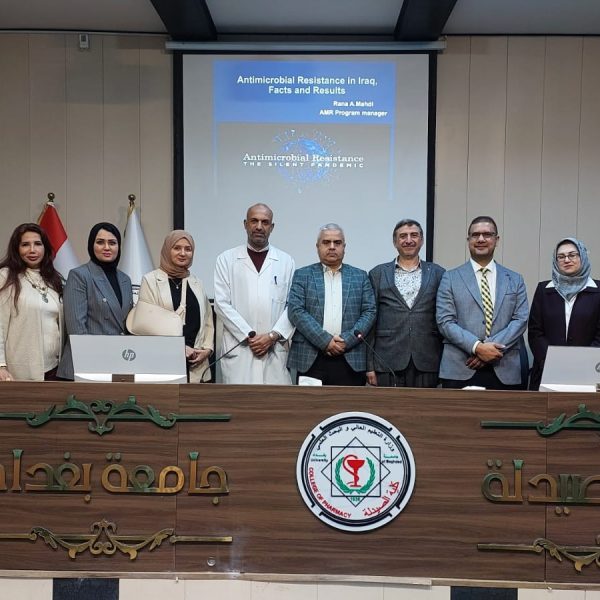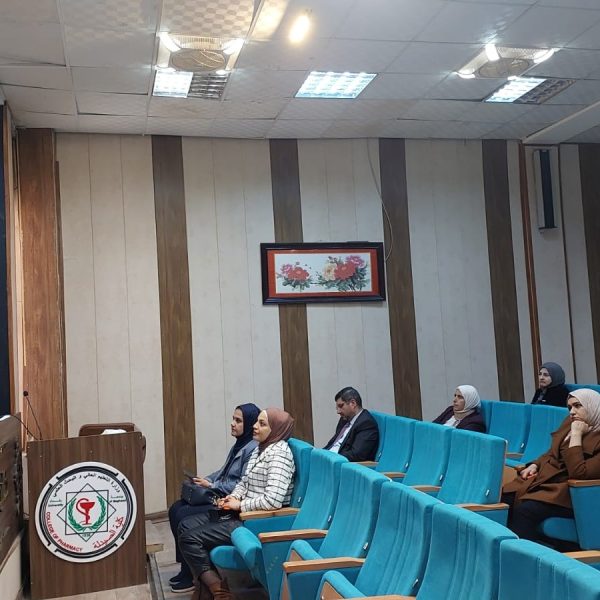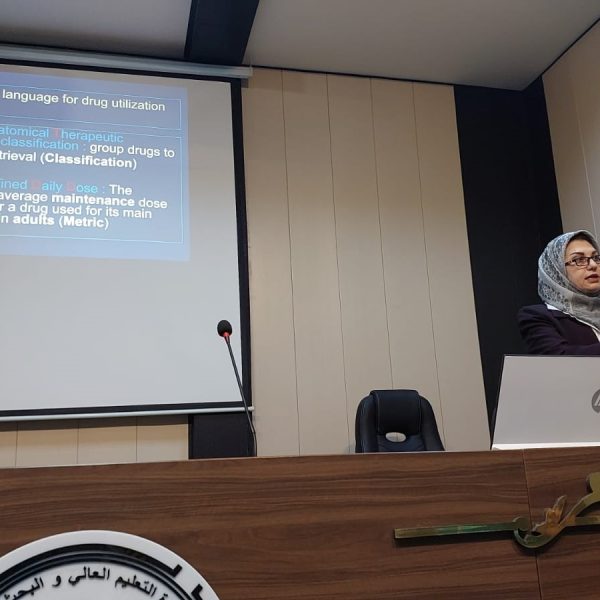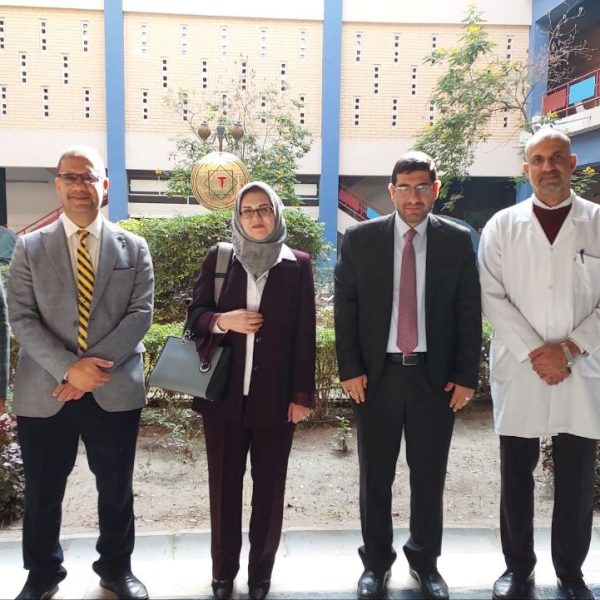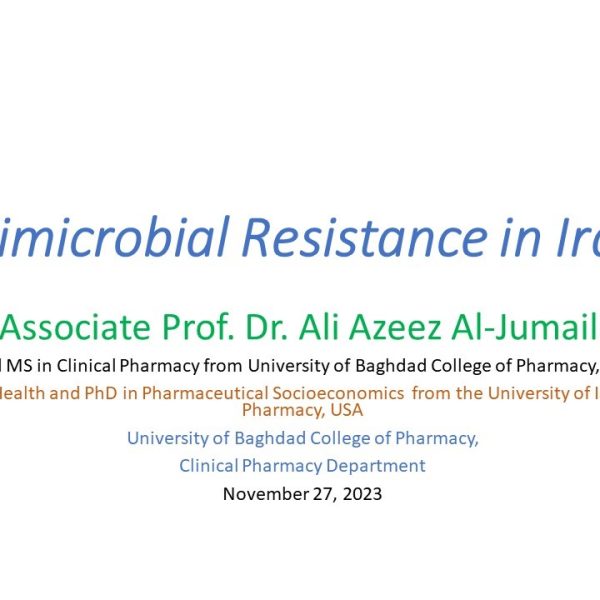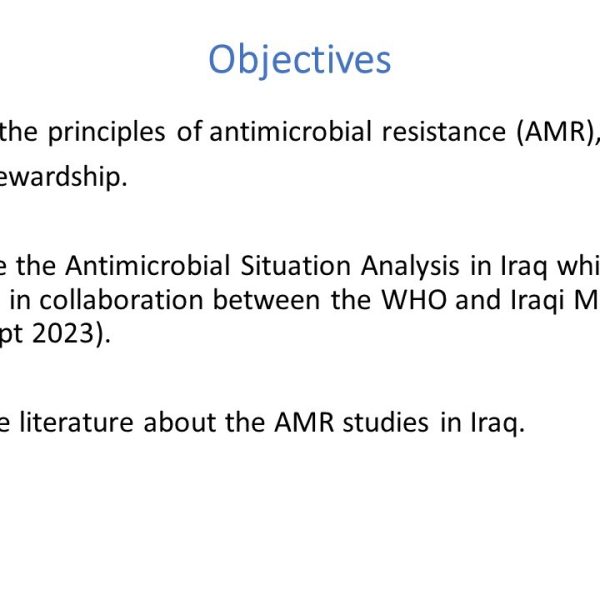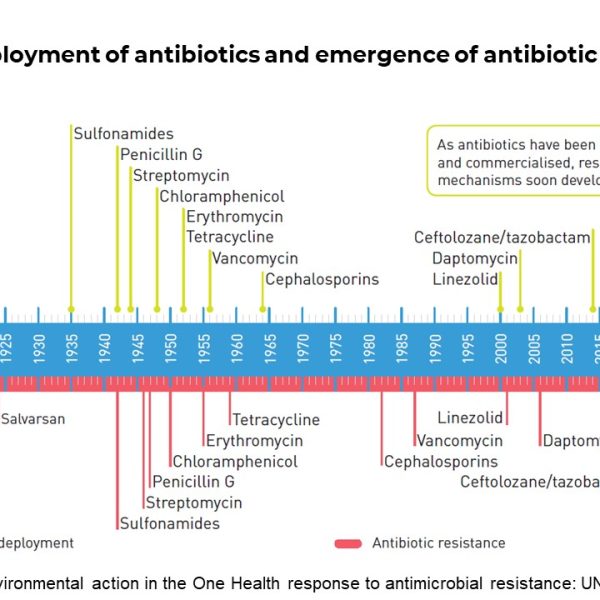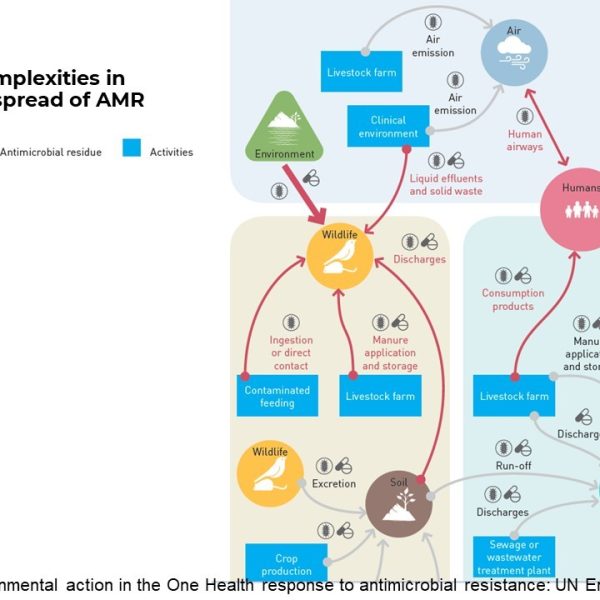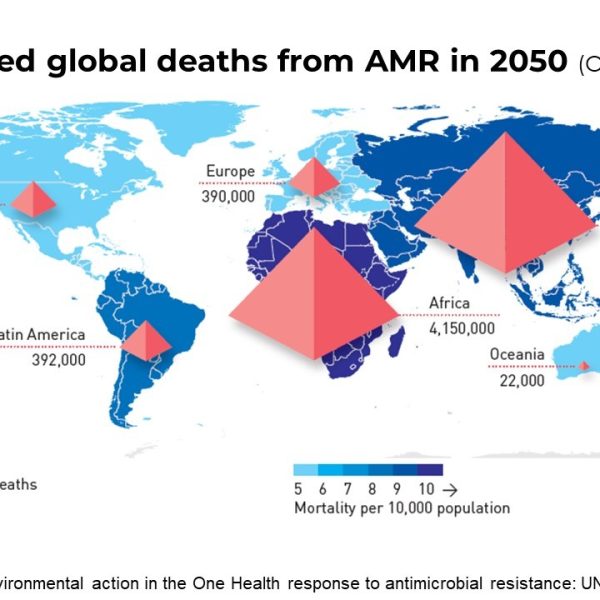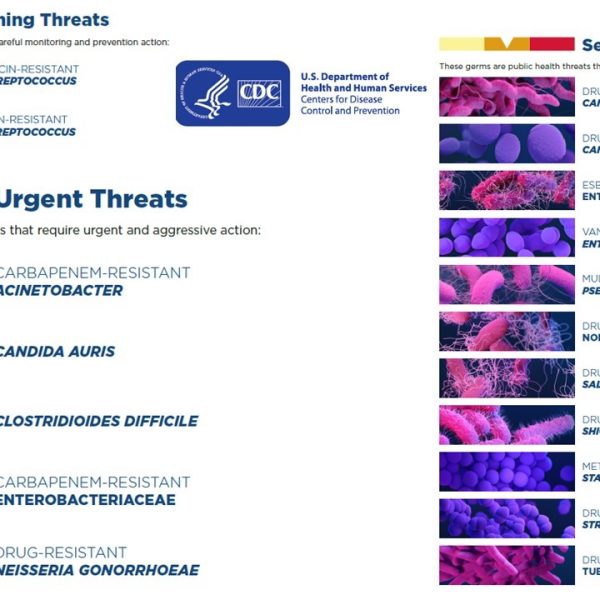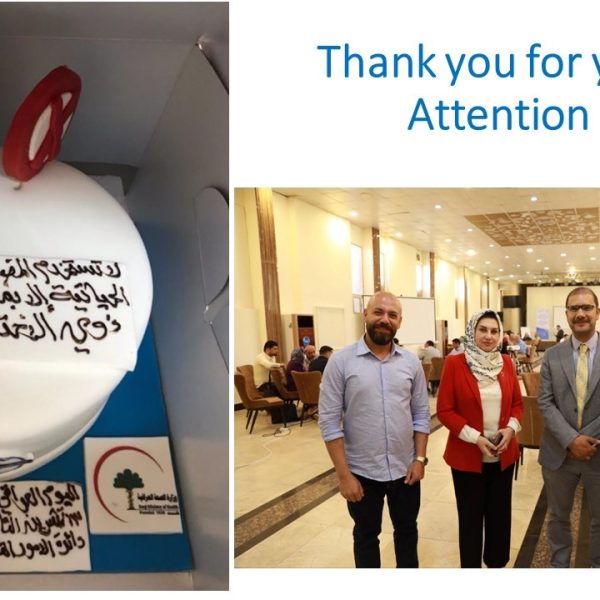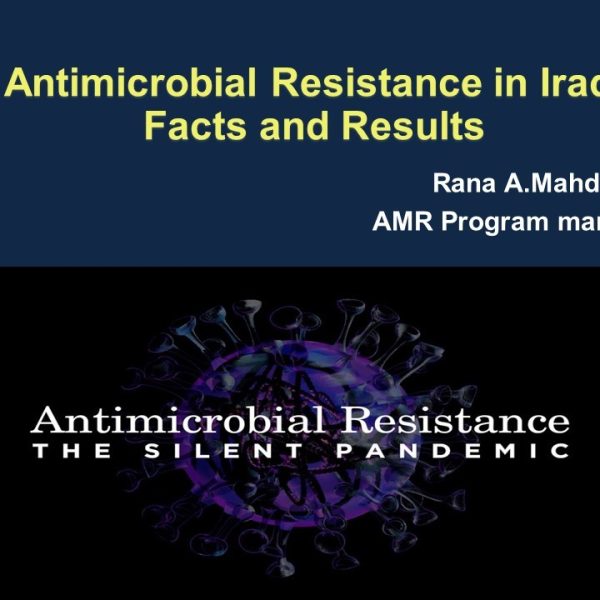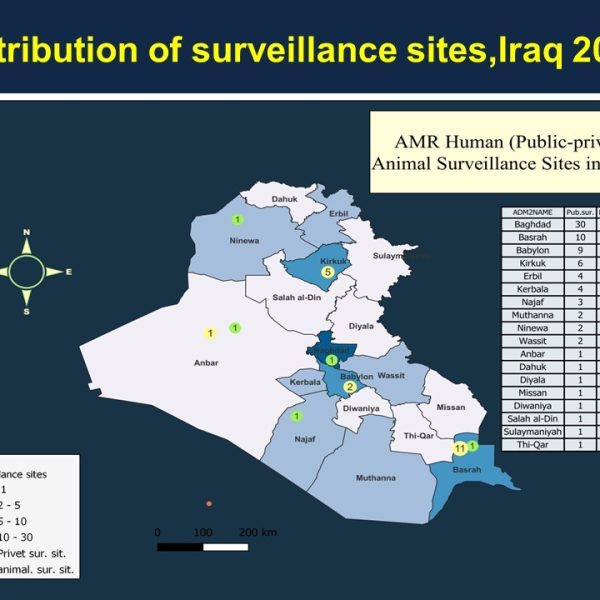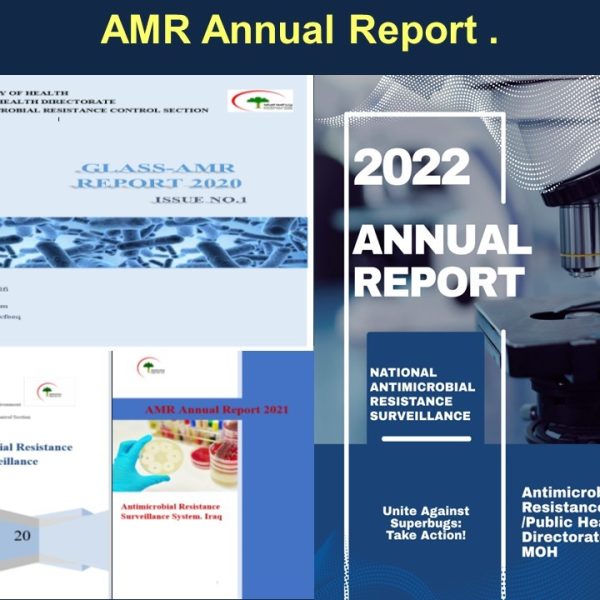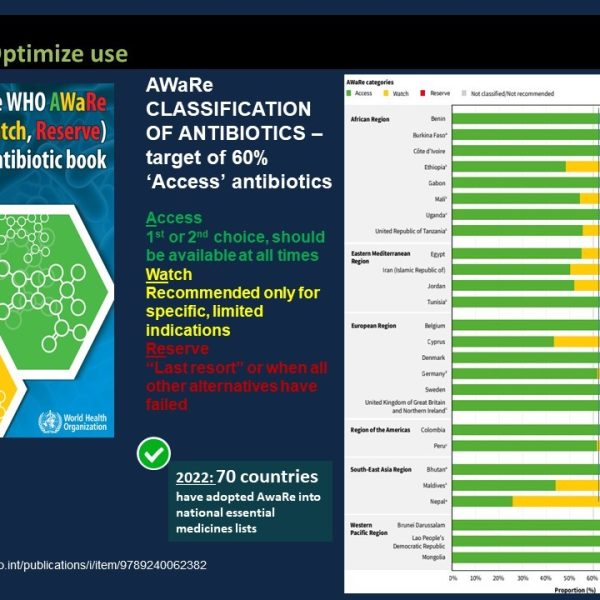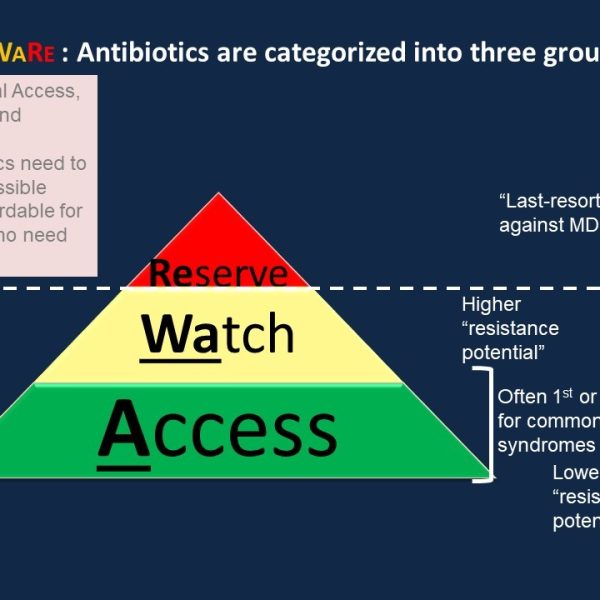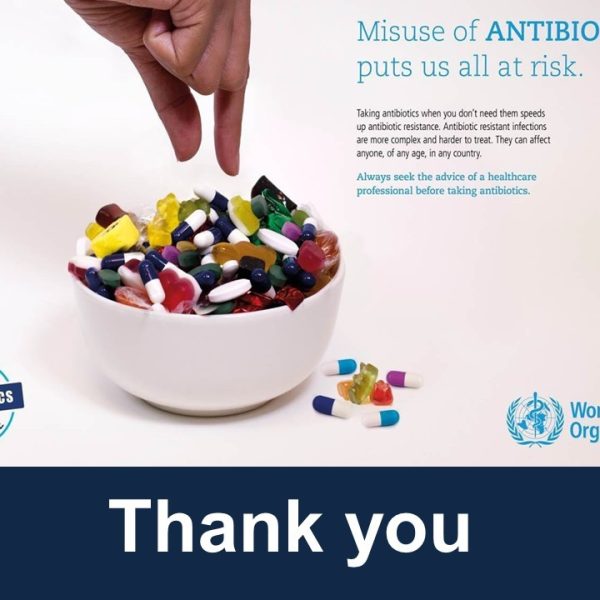Under the supervision of the Dean of the College of Pharmacy, Assistant Professor Dr. Sarmed H. Kathum Alkhateeb, the Continuing Education Unit, in cooperation with the Ministry of Health/Public Health Department, held a workshop about antimicrobial resistance surveillance and stewardship in Iraq, presented by Assistant Professor Dr. Ali Azeez Al-Jumaili, a faculty member at the Clinical Pharmacy Department, and Pharmacist Rana Abdul-Mahdi Nahi, the Director of the Antimicrobial Resistance Unit at the Directorate of Public Health, the Iraqi Ministry of Health, on Monday, November 27, 2023. The workshop included two lectures. The first lecture focused on antimicrobial stewardship and the causes of emerging antimicrobial resistance, in addition to the threats imposed on human health due to multi-drug-resistant bacteria. The lecturer listed several potential risk factors for antimicrobial resistance (AMR), such as misuse of antibiotics by the general population and dispensing antibiotics without prescription at community pharmacies, and highlighted the efforts of the Ministry of Health (MOH) in terms of controlling antibiotic prescribing in public hospitals through the implementation of an antibiotic stewardship program according to the AWaRe list of the WHO. On the other hand, the second lecture focused on the AMR surveillance program that was developed in her unit in collaboration with the WHO since 2019, as she is the focal point for AMR in the Iraqi MOH. In fact, the MOH-AMR Unit identified multi-drug-resistant bacteria in public hospitals that are highly resistant (75%) to third-generation cephalosporins (cefotaxime and ceftriaxone). This active unit collaborates with the Ministry of Agriculture to implement AMR surveillance among live animal livestock. The AMR Unit at the MOH developed three annual AMR national reports (2020, 2021, and 2022) with very informative data about the resistant bacteria and the results of Culture of Sensitivity tests conducted across 80 centers in the country. Those centers reported all C/S to the AMR unit across WHONET. Thus, the MOH has a good AMR surveillance system in addition to AMR stewardship at public hospitals. The lecturer also emphasized the importance of multi-ministerial collaboration in addition to including AMR topics in the curriculum of all health-related colleges. Additionally, there was a call to focus on teaching the topic of antimicrobial resistance to students in medical colleges, given its utmost importance according to the guidelines of the WHO.



